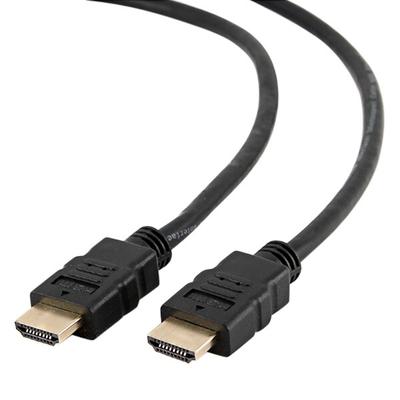
The Social Security Number (SSN) and card issued is an important document which is with you throughout your life, and not just in your retirement. It is needed if you need any benefits (disability benefits, survivor benefits) or if you need a record of your earnings. Losing such an important document need not necessarily put you in a fix since ssa.gov lets you apply for your Social Security card replacement in a hassle free manner. This online facility is available for those living in the District of Columbia and some states (list available online), upon meeting the requirements.
If your Social Security card is stolen, right after placing a theft report, contact your local SSA (Social Security Authority) or visit their website to request a Social Security card replacement. Once your card is stolen, it can be misused as using your SSN; one can get other personal information about you and apply for a loan. To prevent theft, keep your card in a safe place and do not carry it with you.
Replacing your Social Security card involves simple steps:
- Fill out form SS-5 (this same form is used to apply for a new card, request a replacement card and to correct information on the card).
- Submit the same along with the required documents that prove your identity (e.g., Driver’s license. Complete list available on ssa.gov) at your local SSA office.
- If all the requirements are met, the replaced card is usually delivered within ten days.
Note that the replacement card will have the same number and name as the original card unless requested for legal name change. There is no fee for replacement of your card, beware of schemers claiming to offer this service for a fee. The document provided must be current originals or certified copies by the issuing agency. These documents should show your name and other identifying information like date of birth or age. SSA has these measures to secure fraudulent usage of your SSN.
Featured Products
-
The C2G 40304 6' High Speed 4K HDMI Cable with Ethernet is the perfect tool for connecting anything from computers to projectors and monitors, home entertainment systems to HDTVs and gaming systems, or any audio video applications requiring high speed...
-
POWER IT UP BY IMPECCA 6FT USB-C to HDMI 4K High Speed Cable in Black | Wayfair A-HDC206x5-604$81.99Fully functional large gauge high bandwidth cable Connect to any HDTV/Projector/LCD or Electronic Devices | POWER IT UP BY IMPECCA 6FT USB-C to HDMI 4K High Speed Cable in Black | Wayfair
Recent Blogs
-
Natural remedies to consider before taking sinus medications
Many people suffer from sinus issues every year and they resort to sinus medications right away. There are some natural remedies which can help you in easing your sinus symptoms if you want to avoid sinus medication at the early stages. Here is the list of such remedies.
Flush your nasal passages
If you have sinus problems, it is recommended to use a saline solution daily to clear your nasal passage. It is often the first treatment recommended by the doctors before any sinus medication.Inhale steam
Inhaling steam can help you a lot in easing your sinus issues as the hot vapor helps to soften the sinuses.Stay hydrated
If you are well hydrated, your sinus remains moist. Try to drink 8 glasses of water throughout the day for proper hydration.Make your house allergy-proof
Some of the Allergies can make sinus pain even worse. It is recommended that you make your house clear of any dust mites by installing an air filter system. Try to keep the pets out of the bedroom to help ease the allergies.Use a humidifier
A humidifier can keep the air moist and in turn, helps you in your sinus issues. Make sure that you use a humidifier during dry months, not when it’s humid. 35-50% humidity is considered well enough for the rooms.Pressure point activation
Many people find temporary relief when they receive a quick face massage. Applying pressure to the correct points on the face might help you relieve some of the pain.Consume turmeric and ginger root tea
An old spice used in India and the Middle East, turmeric has been considered very useful in treating sinus symptoms. Not only does it contain the natural anti-inflammatory curcumin but also has antioxidant properties. If you use it in combination with ginger root for your hot tea or hot milk, it would help loosen mucus from clogged nasal passages and alleviate sinus pressure making you feel much better.Have apple cider vinegar with hot water
Make a combination of two or three tablespoons of raw, unfiltered apple cider vinegar and a cup of hot water or tea and drink it three times a day. It will help you as the vinegar thins mucus and eases the sinus.Although these remedies are quite helpful, for worsening conditions, we strongly recommend that you meet a registered physician. These remedies cannot replace the sinus medications prescribed by your doctor.
-
 What measures can you take for hip pain relief
What measures can you take for hip pain reliefHip pain can be a result of an accident, illness, exertion, or old age. Basically, it can happen to any person of any age. And such pain can also bring a person’s life to a standstill by limiting the regular kinds of activities. But with proper treatment and self-care one can easily overcome the misery of a hip pain.
The following are some measures that you can take for hip pain relief.
Prescribed medication Some hip pains can be caused by osteoarthritis, injury, bone fracture, sciatica, IT band syndrome, tendinitis, or bursitis. In such cases, it is imperative to visit a doctor who could diagnose your condition accurately. They will then recommend you with necessary drugs and lifestyle changes. If the case seems to be extreme, your doctor might suggest you undergo a surgery. But this will only be applicable in cases where the use of medication comes across as inadequate.Workout If you are experiencing hip pain due to overexertion then you must gradually get back to exercising. It is recommended that you start with simple exercises to revitalize your body’s capability to run at a normal pace. Regular exercise will help you lose stiffness, inflammation, and pain. You can also try swimming as it will help you regain your strength without causing any strain on your hip. You can also try easy yoga exercises to increase flexibility.
Moreover, if you are suffering from arthritis, flesh injury, fracture, or any severe medical condition then it would be best to consult your doctor to gain insight about the right kind if workout regime. They might recommend you with a physiotherapist or develop a suitable training schedule for you. Also, remember that if you are not observing any improvement in your hip pain condition, then you should immediately stop and seek the counsel of your healthcare provider.Change in the lifestyle Apart from physical injuries, the reason for hip pains can be related to conditions like diabetes or obesity. In such a situation, you need to maintain a healthy body weight and revise your diet plan too. While you observe these new changes avoid excessively exerting physical activities like picking up weights, pulling or pushing heavy objects, or sitting in one place or position for extended periods of time.
Most hip pains will get better without major medical intervention, but if your pain persists and restricts your movement while walking or climbing stairs, then you should definitely call your doctor. This is because it could be an onset of a chronic hip pain condition.
-
 A look at the 7 stages of dementia
A look at the 7 stages of dementiaIn most cases, dementia has a very slow rate of progression. Though there is no cure for this syndrome, getting the right medication can help make day to day life more comfortable for the patient and slow down the advancement of dementia. Dementia is often discussed with regard to its stages. This refers to how far the condition has advanced. Knowing what stage the condition has reached is crucial in determining what type of medication is best suited to the person. Colloquially, the stages of dementia may be referred to as early stages, middle stages or late stages but dementia can be categorized according to seven stages. This is most relevant in cases of Alzheimer’s disease. These are:
Stage I – No cognitive decline
At this stage, the patient does not show any signs of dementia and can take care of himself. He is considered to be mentally healthy.Stage II Very Mild Cognitive decline
With age, a person may turn forgetful and not recall names and numbers and frequently misplace things. This is referred to as the stage II.Stage III Mild cognitive decline
This stage can last for up to 7 years before the onset of dementia. At this point, a patient’s family members and friends will begin to notice cognitive decline in the form of forgetfulness, decreased performance and reduced concentration abilities.Stage IV Moderate cognitive decline
This stage is marked by the onset of dementia. A patient can stay in this stage for approximately 2 years. This stage is marked by inability to remember recent events, difficulty in concentrating, trouble in solving complex problems and difficulty with socializing. From this stage onwards, a person suffering from dementia should always be accompanied by someone while travelling to new locations, even though they may be in denial of their symptoms.Stage V Moderate to severe cognitive decline
By the time they reach this stage, a person suffering from dementia will have major memory loss and need assistance with day to day activities such as getting dressed, cooking etc. It is also fairly common for people to get confused about the date and time at this stage. Stage V can last an average of one and a half years.Stage VI Severe cognitive decline
At this stage, a person cannot manage things on his own and needs constant help. Memory loss in this stage extends from short term memory loss to forgetting names of their family members and other parts of their long term memory. Bladder incontinence and bowel problems are common issues at this stage. The patient might also undergo personality changes and suffer from anxiety and hallucinations.Stage VII Very severe cognitive decline
In this stage of dementia, a person loses his ability to communicate as well as psychomotor skills, making him completely dependent on others.




